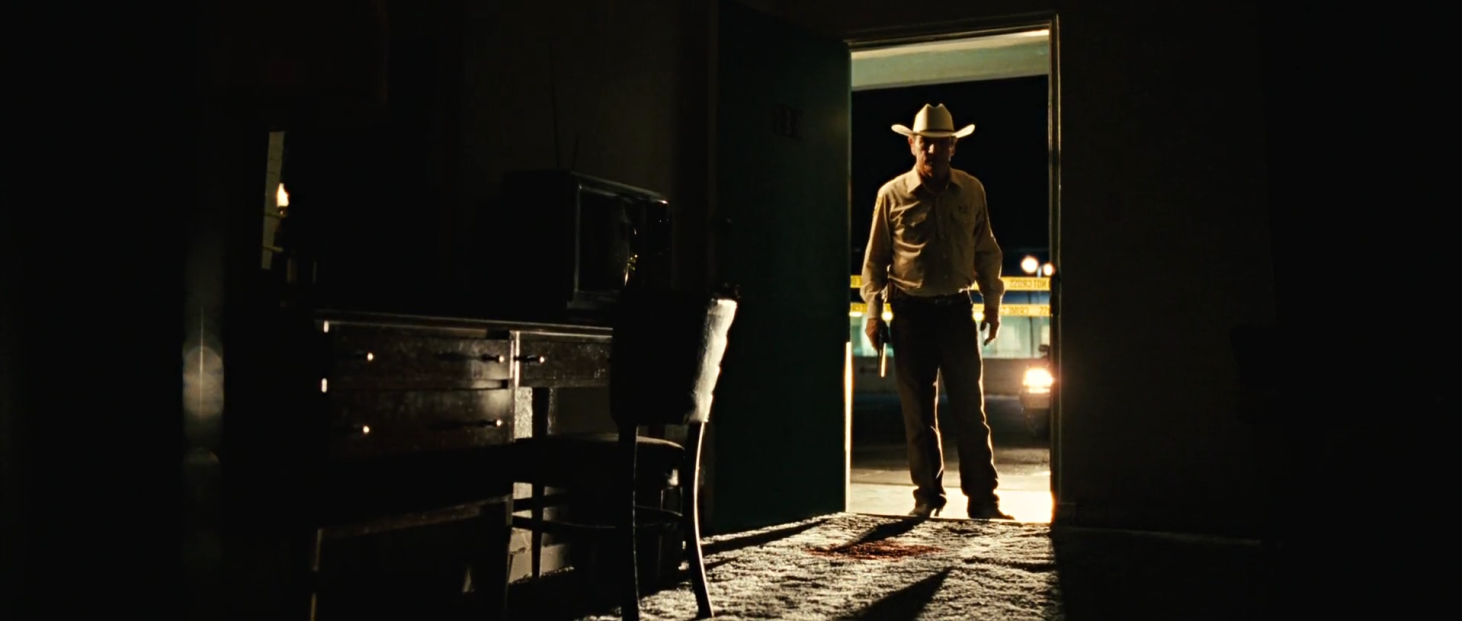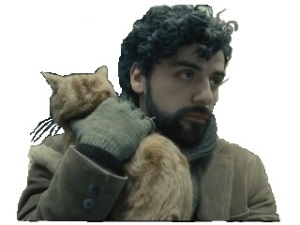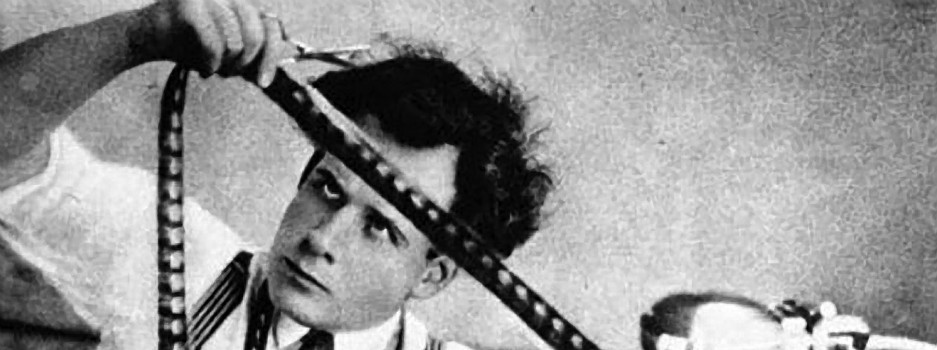
Well well. We have finally gotten to a Coen brothers movie, and which could be better to start off with than this one? No Country For Old Men is one of the best examples of a movie I can think of that takes multiple viewings before you can fully appreciate it. I have a feeling that 90% of people have thought “What? That was it??” the first time they saw the ending. The film’s meaning definitely isn’t handed to the audience on a silver platter, nor is it packaged with a neat little ribbon. This is actually what I love about this movie, as well as many other Coen brothers movies. They let the viewers decide what they want their films to mean, and any hints they leave are usually very subtle. Their movies never end with a big speech that summarizes everything you’re supposed to take away from the story, and they rarely end with a big enthralling climax that ties up every loose end. They end their films the way they see fit. However, it obviously is not just the ending that adds to No Country’s themes. The characters each represent an important piece of a puzzle that tells of a gruesome world, those who think they understand it, and those who don’t.
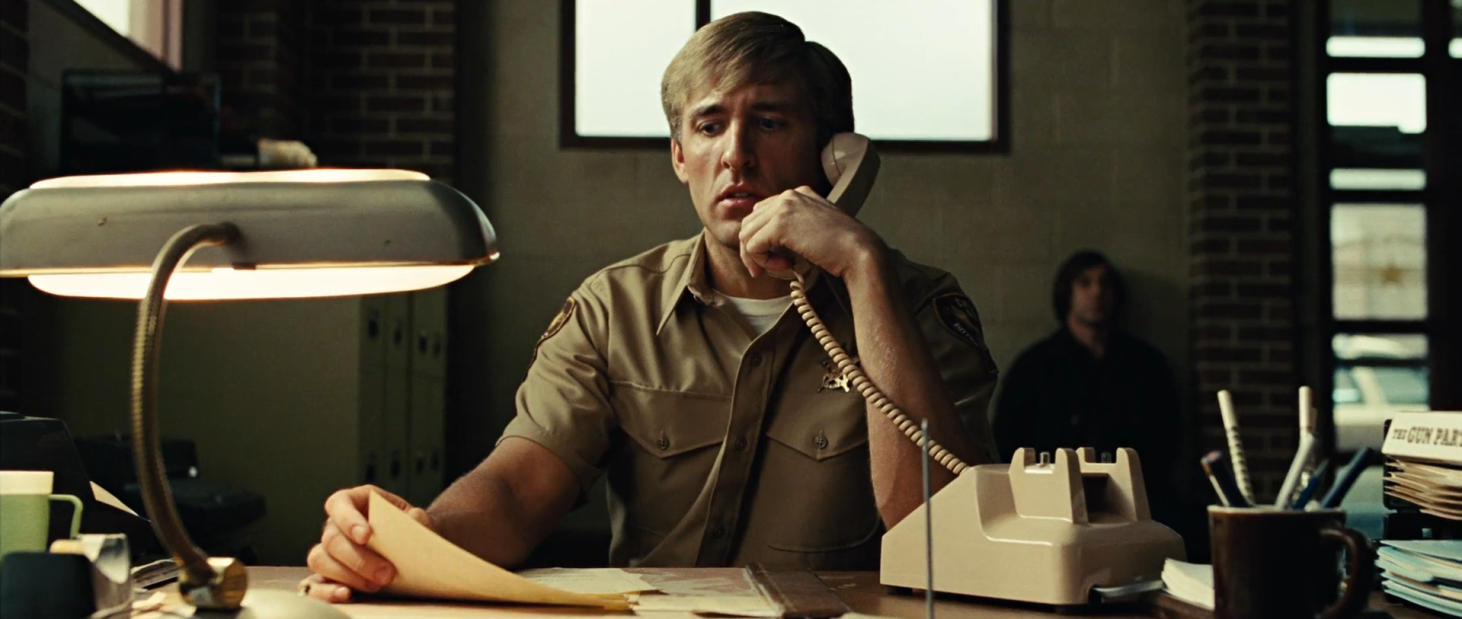
First, we’ll talk about this film’s world. Specifically, 1980 West Texas. Crime has been around for as long as law has existed. For as long as people have put their wants above others’ rights, crime has existed. Disgusting, barbaric crime that a lot of humans could never have the heartlessness to do, or even understand how some could do it. Unless you had a rough childhood, most of us aren’t exposed to this crime until we’re older, along with all of the other harsh realities of life. As a result of this, it’s no surprise that naive people might assume that the whole country was simply more peaceful when they were younger and that it’s only recently that people have become so depraved (Or at least in a sheltered Texas town in the 80’s. Nowadays, if you have an internet connection, I don’t think there’s any excuse to be this ignorant of the past). This is the exact type of person that Tommy Lee Jones portrays in this film, a nostalgic sheriff who is appalled by the current crime of his town. He clings to an idealized version of the past and refuses to accept the world as it is, despite how old he is. There’s two other characters that take part in dealing with this theme too. One who thinks they can overcome the world’s cruelty of chance, and one who fully embraces it. It’s not everyday you see a movie that is so uncompromising with how cold its world is, but it is modeled after our world after all.
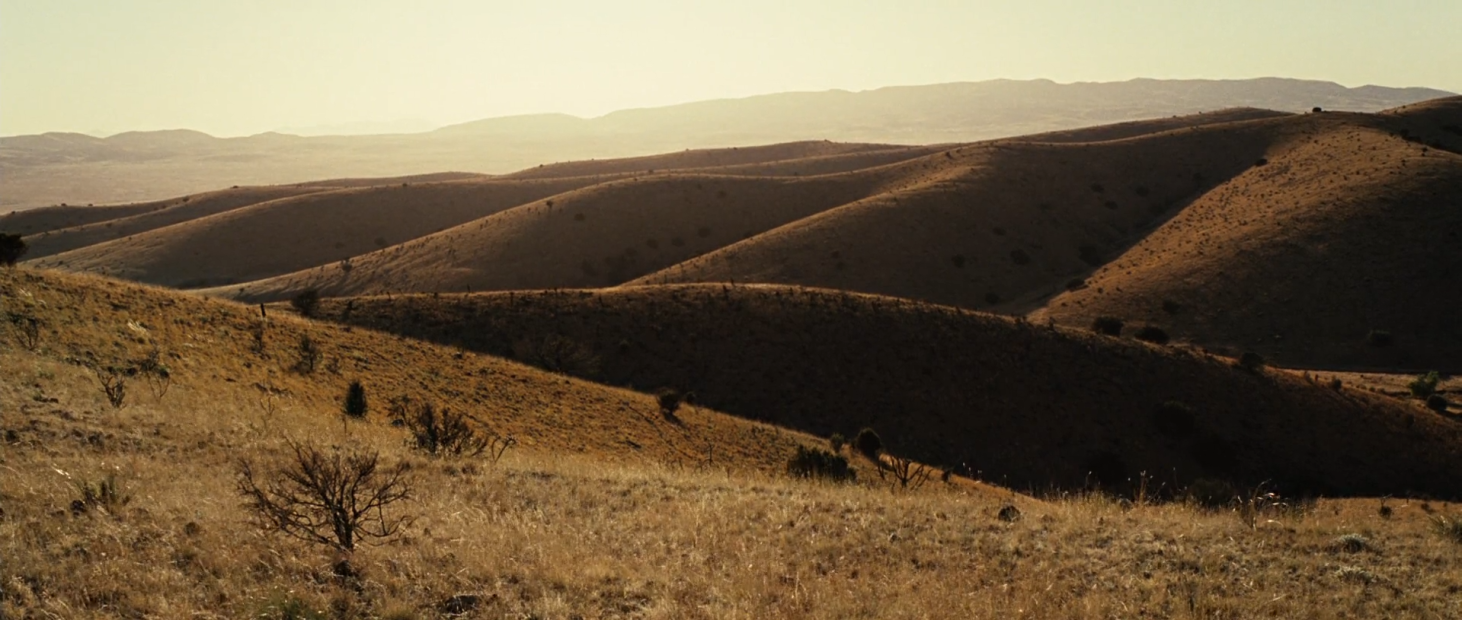
Ed Thom Bell is the old sheriff I was talking about earlier. The film begins with him giving a monologue, and I think it does an excellent job of summing his character up in just a few sentences. He gives an explanation of how his father as well as his grandfather were also lawmen before him, and he makes it clear how much he respected them and how he tends to compare himself to them now. The region was apparently safe enough back then that they didn’t even need to carry guns regularly. He wonders how they would react to the present crime, and gives an example of a young man he arrested who showed no remorse for murdering a 14-year-old girl. It’s easy to see from this why Ed Thom is such a cautious person and why he doesn’t want to believe that the world has always been this dangerous. He stayed in the same place his whole life and never had to deal with too much trouble for most of it. It’s not until he grew older that the evils of the drug trade began to creep in from beyond his peaceful bubble of a town. He’s over-matched and unprepared now, with no help from the lawmen before him. I love these bone-chilling last lines “The crime you see now, it’s hard to even take its measure. It’s not that I’m afraid of it… …But I don’t wanna push my chips forward, and go out and meet something I don’t understand. A man would have to put his soul at hazard. He’d have to say “Okay. ..I’ll be part of this world”.”. This perfectly encapsulates a fear that every human being with a moral compass has had: Accepting the disorder and the chaos of the world, and that we’ll never be able to fully understand it. We’ve always been afraid of what we can’t explain. We want order and structure, but that structure doesn’t last forever. This isn’t just a big theme in No Country for Old Men, but in many other Coen brothers movies as well (Fargo, The Big Lebowski, and A Serious Man just to name a few). They tend to follow small people with simple outlooks on life, who suddenly have to face large circumstances that they can’t handle or don’t understand. These circumstances range from crazy crimes, to plans gone wrong, to the futility of life, and to just the plain absence of logic. Coen movie protagonists always have to deal with unexplainable chaos. They really can’t get a break, can they?
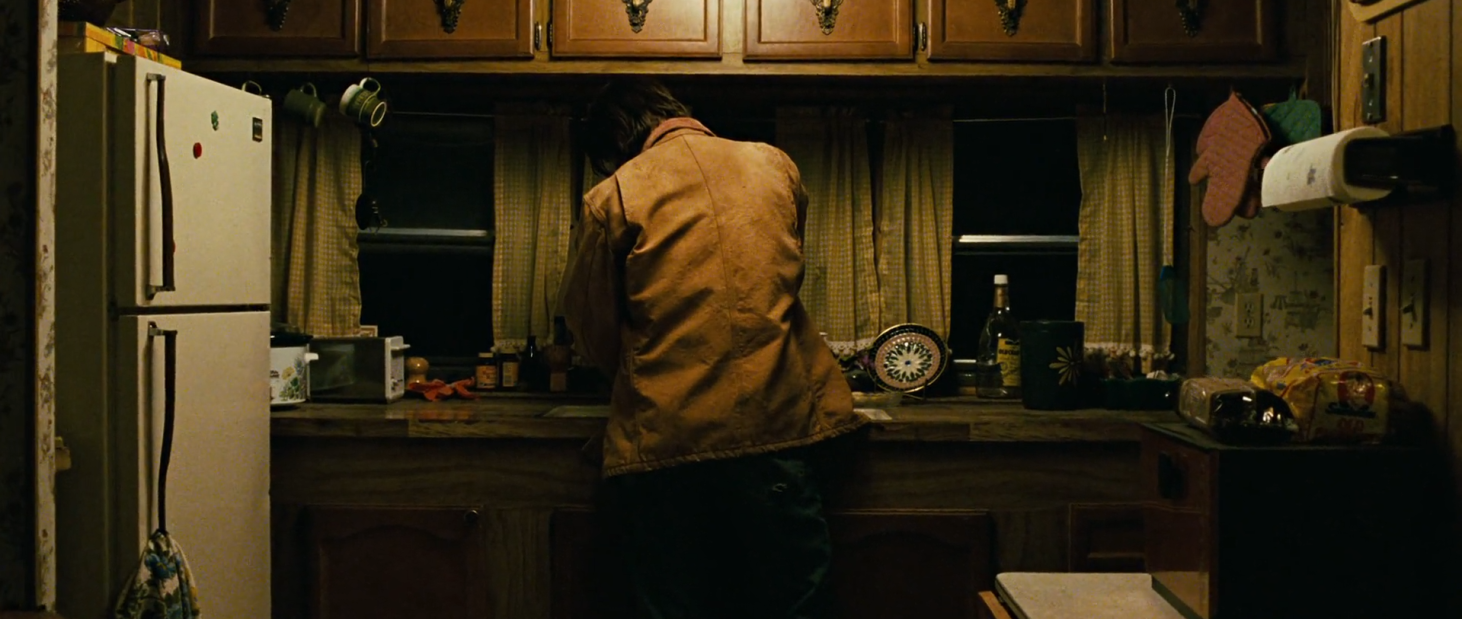
This brings us to our second character, Llewellyn Moss. Right off the first scene we see this guy in, we can tell he’s a total badass. More importantly though, he is a normal working class guy with a typical place in the world. He welds, he hunts, and he goes back home to his wife so he can do all of it again the next day. That is until, by complete chance, he happens to find a suitcase of 2 million bucks from the aftermath of a drug deal gone wrong. This is the perfect set up for any character like this, because this is a scenario that probably divides the average working class population in regards to what they would do. Would you just leave the money and go back to your mundane but comfortable home, not wanting to risk your life as well as the safety of your family? Or would it be worth it to take the money and try your hardest to run from whatever force might try to stop you? It’s a hard question to answer. It depends on how clever you think you are. From the start, Llewellyn seems like a pretty clever guy. That is, until he makes the mistake of going back to the crime scene in the middle of the night in an attempt to help a man who was still alive. He then has to run away from two men who spot him and try to kill him. This decision Moss made is ultimately what alerts him that he’s being pursued for the money though, so in a way it’s a good thing that he made it. If he hadn’t, the drug dealers may have came to his house and killed him and his wife unexpectedly. But now he knows to leave for a motel as well as to send his wife to her mother’s to keep her safe. It’s funny how cause and effect works that way, huh? Llewellyn decided to go back to the scene completely on a whim, just like he took the money on a whim. It shows just how random fate really is in this film’s world, as well as our world. Nothing really happens for the reason we want it to, it just sort of happens because the world makes it happen. Moss is a person who seems to have just gone with the flow for most of his life, but now he suddenly decides to take a huge risk because he isn’t satisfied. Does it pay off for him? Will the chances of the world work in his favor? Well there’s one character in this story who actually considers himself to be a personification of fate, someone who actually tests who will hold up under (What he perceives to be) the world’s circumstances. This is the character who pursues Llewellyn for the money, so in a way, Llewellyn spends most of this movie actually running away from his own fate. That’s a scary concept.
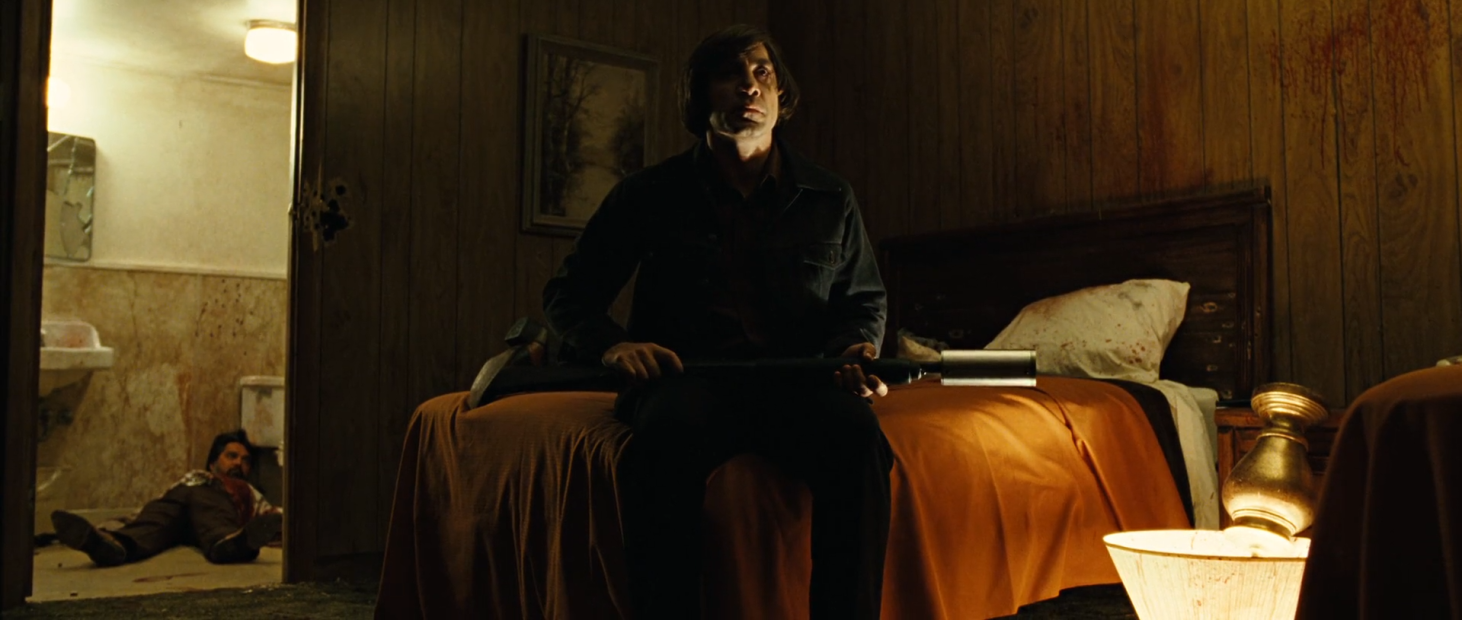
I am of course talking about Anton Chigurh, played by the amazing Javier Bardem. If you’ve seen this movie at least once, you’ve got to remember this character. You’ve just got to. From the first moment we see his face on screen as he’s strangling that deputy, we need no verbal introduction to who this guy is. But just in case you didn’t know, he’s a psychopathic hit man who is probably not from Texas (Or from this world). Once he escapes from a police station, he is hired by two employers to pursue Llewellyn Moss in order to retrieve the 2 million dollars he stole. That’s who this guy is, but what exactly does he represent? Well there’s one scene that I not only believe is a fantastic scene in general, but that also once again does a great job summarizing this character’s role in the theme. I’m talking about that first coin toss scene, when Chigurh tries to intimidate an old store clerk… for no particular reason. Well actually there is a reason, it’s to introduce the philosophy that motivates his killings. He first tries to confuse the old man with creepy and ambiguous questions, but then he actually tries to get to know him. After learning of his life, he’s finally picked a victim for his devilish game, and proposes a coin toss. What did the old man put up exactly? According to Chigurh, “You’ve been putting it up your whole life, you just didn’t know it.” If that line doesn’t already make your hair stand up, there’s the even more horrifying line after it, “You know what date is on this coin? 1958. It’s been traveling 22 years to get here, and now it’s here. And it’s either heads or tails”. So yeah, like I mentioned earlier, Anton sees himself as the deliverer of fate to whoever he kills, and he lets only a 50/50 chance dictate that fate (Or he at least occasionally does…). No matter how random or heartless the fate is, he genuinely believes he needs to deliver it.
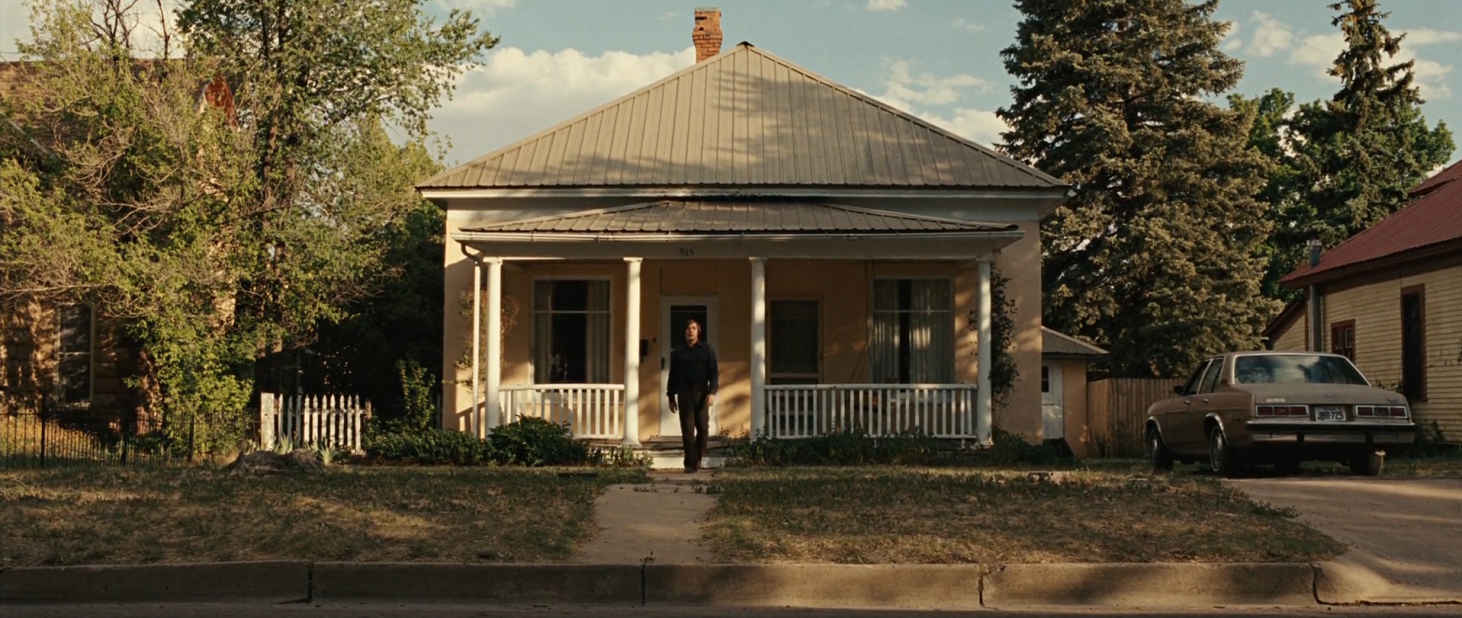
The thing about Anton though, is that he’s incredibly arrogant to think this about himself. He’s let the creed go so far to his head that he thinks he’s actually above the law, that he will always win no matter what because he’s the world personified. But although he may believe that he stands for a greater purpose, in the grand scheme of things he’s just another psychopathic killer. Sure, Moss does end up dead in the end, but he wasn’t even killed by Anton, he was killed by some other hit men who were able to find out from his mother-in-law where he was hiding (Another good example of things happening randomly in this movie. Moss’s mother-in-law had no idea that the Mexican she was talking to was a hit man, but it was sadly because of her ignorance that he died). There are two scenes in this movie near the end that solidify what I’m talking about. The first scene is when Chigurh shows up at Moss’s house to kill his wife Carla-Jean, but she refuses to participate in his coin toss game. She says “The coin don’t have no say. It’s just you”. This questions whether Chigurh’s principle actually makes sense for him to hide behind. Is he really some sort of modern day grim reaper doing his job, or is he only using a pseudo-intellectual philosophy to mask what is really just senseless killings? Is he really letting fate decide, or is he deciding? He still kills plenty of people throughout the film without tossing the coin first anyway, so what makes this time any different? Anton replies to this “Well I got here the same way the coin did”, so he seems to be unfazed by this challenge to his authority. The second scene is the one that immediately follows after. It’s assumed that Anton killed Carla-Jean since he checks under his shoes for blood after leaving the house (Whether he killed her after she submitted to the coin toss or if he just killed her without it is a mystery, but I think it’s better left that way. It shows just how small of a difference it really makes). He then suddenly gets in a car accident while he’s driving away, and limps out of the vehicle with a broken bone. He leaves to God knows where after bribing two kids to stay quiet. Once again, this is a very random scene that shows just how chance-driven our world is, but it also shows how insignificant Anton really is. He had no way of knowing that he would get in a freak accident and get seriously injured, but it happened and he had no way of stopping it. Even though he makes a clean getaway from the police, he isn’t above the world or its chaos. This is an important thing to take away from this character if you really want to understand what the point of this film is. The world is scary and chaotic. We can either hide from it, try to control it, or accept that we’re a part of it and aren’t any better than it.
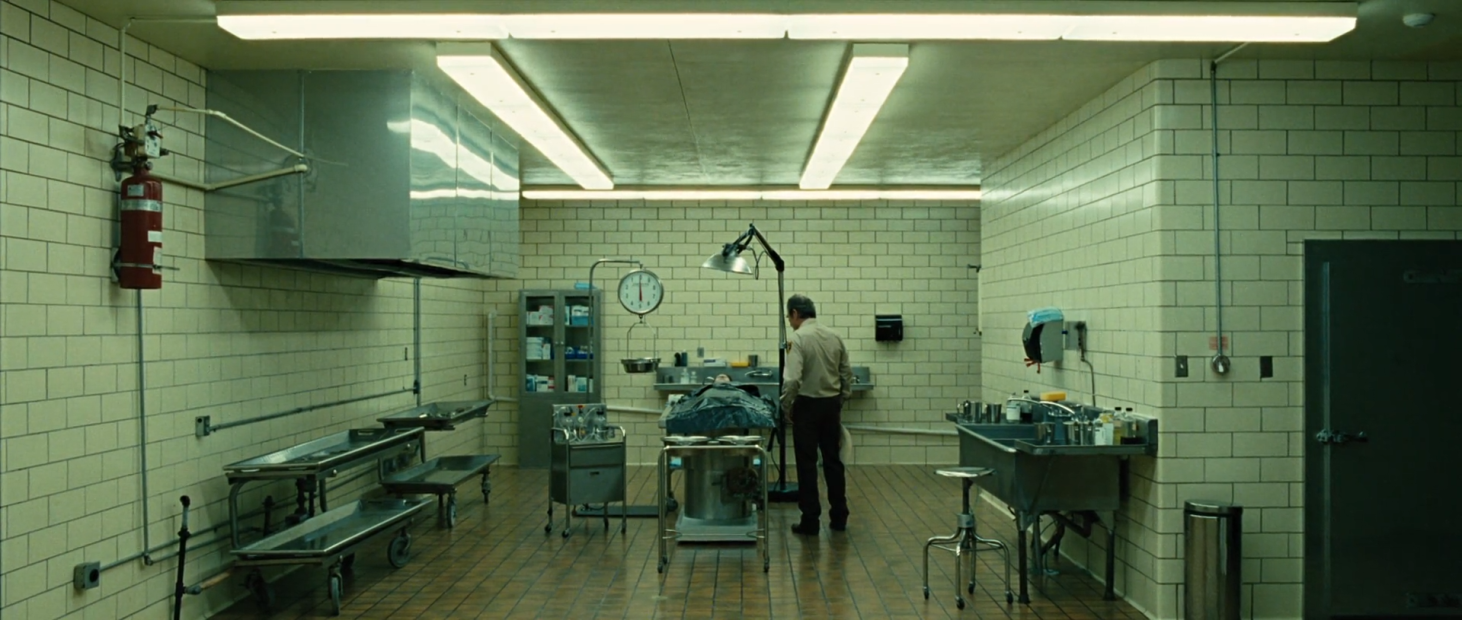
In the end, Llewellyn is killed despite Ed Thom Bell’s efforts to track him down as well as Chigurh. Llewellyn sadly just made the mistake of underestimating the situation he got involved in, and his wife suffered the consequences of his reckless actions. Well, after all that tragedy, what about Bell? How does his story end? Well he honestly spends most of the movie not directly participating in the events that unfold, and when he does it’s always reluctantly. It makes sense for his character though, considering I l already mentioned that he feels over-matched by what his county has turned into over the years. He always wants to avoid going out to investigate crime scenes, for fear of running into something he “won’t understand”. When he finally travels to El Paso so he can find Llewellyn and try to help him, it’s already too late. He literally arrives just as the Mexicans are speeding away. Naturally he feels defeated after this misfortune, as well as because Chigurh still remains on the loose. There’s one key moment in a later scene that gives his character an arc though, that gives him a different perspective on this predicament. Ed Thom goes to his Uncle Ellis for a visit, after he’s decided to retire from being a sheriff. When his Uncle questions his decision, he explains his feelings of being unprepared and inferior. He says an especially melancholic line, “I always figured when I got older, God would sorta come into my life somehow. …And he didn’t. I don’t blame him. If I was him I would have the same opinion of me that he does”. To offer a new viewpoint to his nephew, Ellis starts talking about his other uncle who was a lawman in the same area and how he was killed on his porch by some criminals. It’s a very chilling monologue, but his main point is that it happened 71 years ago. They shot Uncle Mac in the left lung, silently watched him take his final breaths, and this was probably a few years before Ed Thom was born. Ellis educates him on his warped view by saying “What you got here ain’t nothin’ new. This country’s hard on people. …You can’t stop what’s coming. It ain’t all waiting on you. That’s vanity”. It’s sad to me that the point of this monologue was probably lost on a lot of viewers who were only paying attention to the more suspenseful scenes. It’s fantastically delivered, and it demonstrates how idealizing the past too much can cripple someone’s confidence and faith in the world. There’s so many people who think that their era was so special, and that it’s only not until recently that the world has gotten harder to live in. I think these ignorant views say more about the people who hold them than the world itself. Not everyone had it as easy in the country as Bell did when he was younger. It’s honestly sort of tragic that he grew up to be so scared of the world though, and he’s obviously not the only person who feels this way. Like he said in the beginning of the film, it’s hard for a man to put his soul at hazard and say “Okay. I’ll be part of this world”.
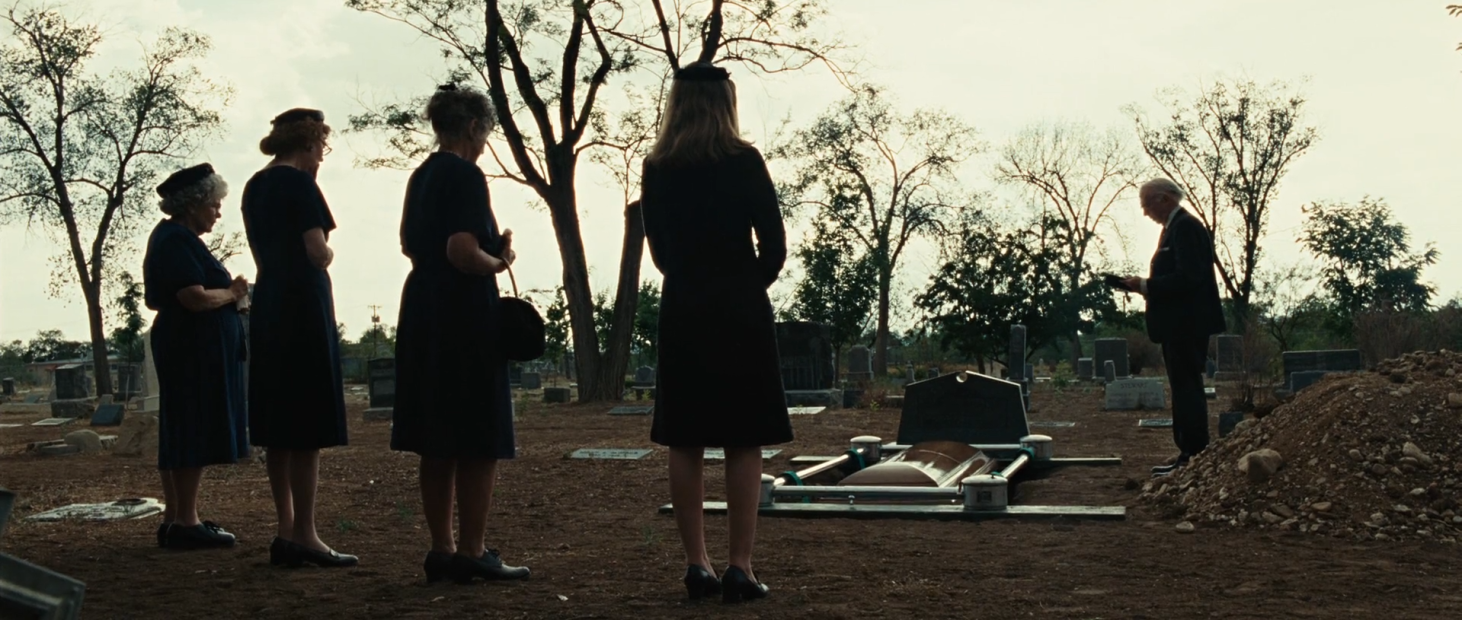
There’s only one more scene in this movie for me to talk about. The ending, which funnily enough I mentioned at the beginning of this article. I’ve heard too many people say that this movie would have been better if the ending was different, but I honestly understand why they would feel this way. It’s jarring the first time around when Llewellyn is suddenly killed off screen (The Coens do love their unconventional twists though), and the ending might seem unsatisfying and abrupt to those who wanted the good guys to win. I’ve seen this film about 7 times now however, and at this point I don’t think the ending could have been better. We see that Anton Chigurh is vulnerable after his car accident, just like how the evil in this world is vulnerable even when it doesn’t seem like it. Then we go back to Ed Thom’s house, in the morning just after he’s woken up. His wife urges him to tell about his dreams, so he explains the two that he can remember. In the first one he lost some money given to him by his father, and in the second one his father rode past him on a horse while they were traveling through a mountain pass. He felt confident in the dream that he’d find him waiting at the end of the trail with a warm fire. Honestly, I can’t completely interpret what the first dream means. Maybe the loss of the money represents that Bell is not a greedy man like Moss, that he can accept his place in the world without wanting more. The second dream is definitely less cryptic though. I’ve mentioned many times before how Ed Thom misses the past, and it’s obvious that a lot of this insecurity is due to him not having his father around. He died a lot earlier before he grew older, so he hasn’t had that sense of guidance or comfort for much of his life. It makes sense that he just wants to see him again, that he’s tired of being scared and lonely without him. This ending could seem very depressing depending on your angle, but I personally choose to see it in a more bittersweet light. He takes true comfort in the belief that he’ll be with his father again after he dies. It’s simple, but there’s something beautiful about that, that he looks forward to this one spec of light in the darkness. The world is dark, chaotic, and we can’t control it. At least we have the people we look forward to seeing at the end of the day.
